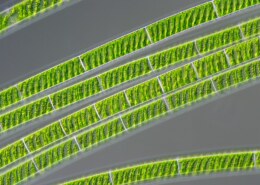What Is Evolutionary Advantage Of Spirogyra To Be Multicellular?
Spirogyra is a type of algae that has evolved to be multicellular – meaning that it has cells that are more specialized and specialized for different functions. This allows for a much greater level of organization and coordination within the algae than would be possible if all the cells were simply single-purpose cells.
This evolutionary advantage may have helped Spirogyra to become the dominant form of algae on Earth, and it may be responsible for its widespread distribution and many unique adaptations. For example, Spirogyra can photosynthesize like plants, which gives it access to a wide range of nutrients not available to other algae species. Additionally, Spirogyra can form complex tissues and organs, which allows it to live in more varied environments than other types of algae.
What is an Evolutionary Advantage?
Evolutionary advantage refers to a trait that is advantageous to an organism relative to its competitors, and is usually understood in terms of survival and reproductive success.
In the context of multicellular organisms, evolutionary advantage has been suggested to arise from the ability of Spirogyra cells to produce extracellular porins (enzymes), which can mediate cell-cell communication.
This communication may be important for coordinating the activities of individual cells in response to environmental changes or for coordinating the cellular response to stresses such as osmotic stress or heat.
Advantages of Multicellularity
Some possible advantages of multicellularity include:
1. Increased adaptability – Multicellularity allows for increased adaptability to changing environments, as cells can work together to create new structures and systems.
2. Increased communication and cooperation – Multicellularity allows for increased communication and cooperation between cells, which allows for more efficient coordination of tasks and better adaptation to changing conditions.
3. Greater survivability – Multicellularity may confer a greater survivability against disease and predation, as cells are more likely to be able to resist or overcome attacks by pathogens or predators.
4. Greater reproductive potential – Multicellularity may confer a greater reproductive potential because it allows for the formation of larger populations that are more likely to survive in changing environments.



Leave an answer
You must login or register to add a new answer.